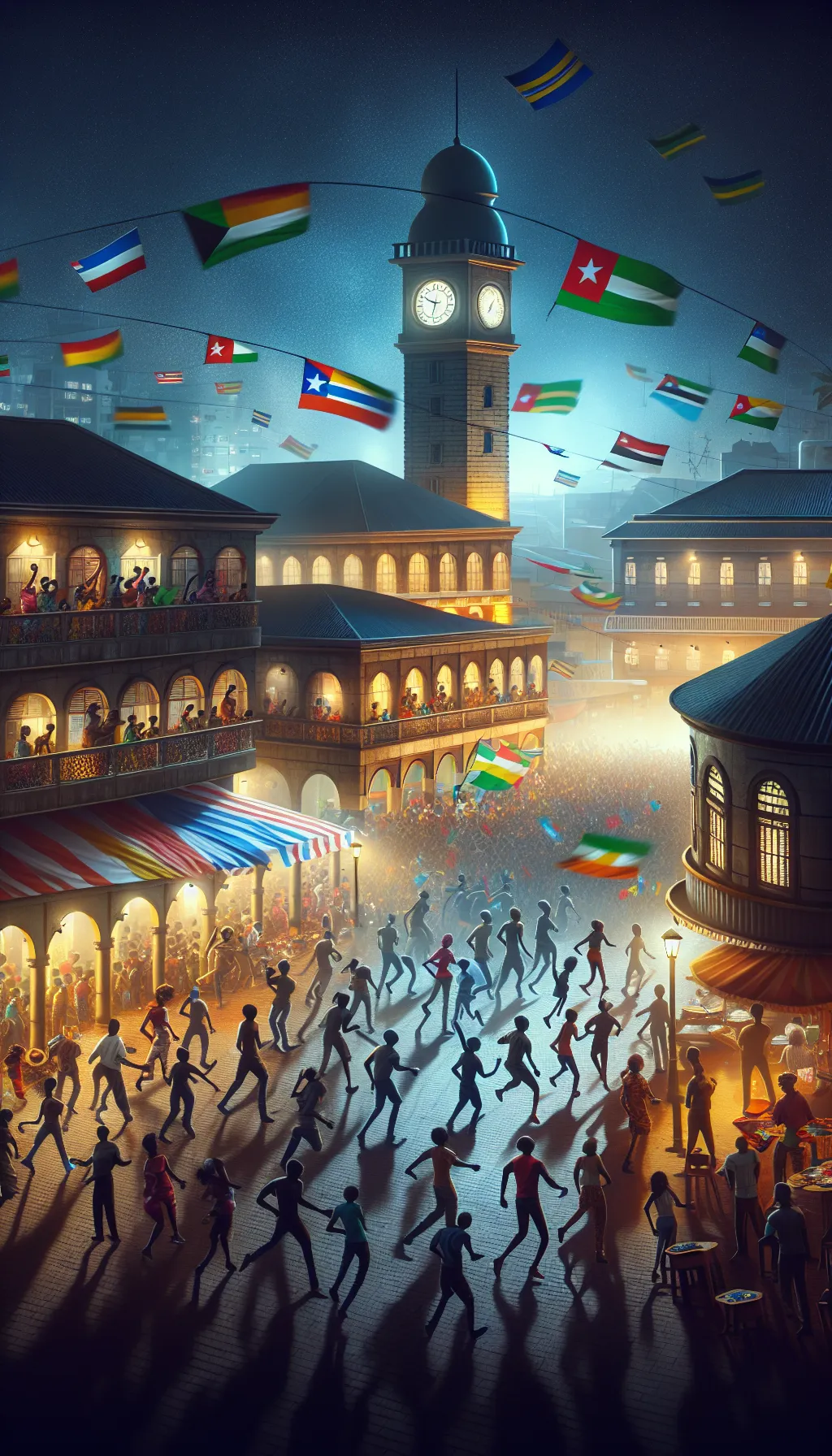Sierra Leone – Midnight of Freedom: Sierra Leone's Independence Day, 1961
TLDR;
- Event: Sierra Leone gained independence from British colonial rule on April 27, 1961, after 153 years of control.
- Key Figures: Sir Milton Margai became the first Prime Minister, with contributions from opposition leaders like Siaka Stevens in the peaceful transition.
- Celebration: The lowering of the Union Jack and raising of Sierra Leone’s new flag at midnight marked the moment, accompanied by national anthem “High We Exalt Thee, Realm of the Free”.
- Significance: The independence symbolized the start of self-determination and hope, despite future challenges including a coup in 1967.
–
Story
The air was electric with anticipation on the night of April 26th, 1961, as the clock approached midnight in Freetown, Sierra Leone. The streets were alive with the vibrant colors of national flags and the joyous sounds of celebration. This was the moment Sierra Leone would finally break free from the chains of colonial rule and step into the light of independence.

For 153 years, from 1808 to 1961, Sierra Leone had been under British control, its people yearning for the right to govern themselves. The journey to independence was fraught with challenges, but the spirit of the Sierra Leonean people was unyielding. Leaders like Sir Milton Margai, who would become the nation’s first Prime Minister, alongside broader political coalitions including opposition figures like Siaka Stevens, worked tirelessly to negotiate a peaceful transition of power as part of a gradual decolonization process.
As the clock struck midnight, marking the dawn of April 27th, the Union Jack was lowered, and the new flag of Sierra Leone—green (top), white (middle), and blue (bottom)—was hoisted high. The crowd erupted in cheers, tears of joy streaming down faces as the national anthem, ‘High We Exalt Thee, Realm of the Free,’ played. It was a moment of triumph, a testament to the resilience and determination of a people united in their quest for freedom.
The significance of this day was profound. It marked not just the end of colonial rule, but the beginning of a new era of self-determination and hope under a Westminster-style parliamentary system. Sierra Leone was now a sovereign nation, ready to chart its own course in the world.
The road ahead would not be easy, with challenges both internal and external, including future instability such as the 1967 coup. But on this day, the people of Sierra Leone stood together, proud and free, ready to embrace the future with courage and optimism.
–
| Would a different approach to independence have changed Sierra Leone’s path? |